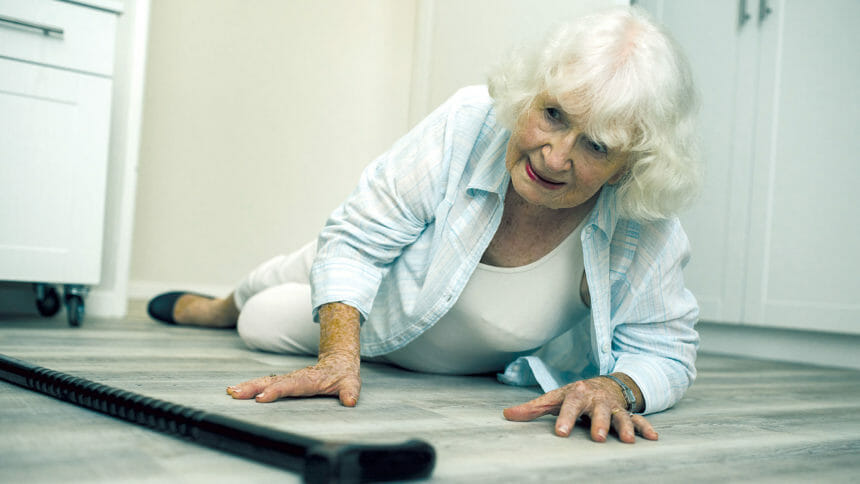
An artificial intelligence-enabled camera system helped senior living communities reduce visits from emergency medical teams by 75% and visits to emergency departments by 80% by detecting falls among residents living with dementia, according to the results of a pilot study published in the July issue of the American Journal of Managed Care.
“The reduction in use of emergency services will likely lead to lower healthcare costs and stress among residents, families, and facility staff,” the authors wrote.
Investigators studied the technology, called SafelyYou Guardian, with 55 of 193 residents across six San Francisco-area residential care facilities in June through August 2018. The camera system was used to detect and record falls; alerted staff members were able to review the videos in real time to determine whether a resident had hit his or her head or had other injuries, Shirley Nickels, one of the study’s authors and chief operating officer of SafelyYou, told McKnight’s Senior Living.
“This greatly helps the staff communicate with the resident’s family and EMS to determine if an ED visit is needed,” she said.
Reviewing the videos in detail also helps caregivers determine root causes of falls and implement interventions to reduce their recurrence, Nickels said. That’s especially important for residents living with dementia, she added, because they fall four times per year, on average, which is twice as often as other older adults.
Based on more than 1,500 videos to date, Nickels said, the most frequent actions taken by providers to reduce the recurrence of falls have included installing nightlights in bedrooms or bathrooms; changing, removing or altering the placement of beds, chairs or shelves; placing mobility aids within reach of residents and positioning the aids properly; repositioning residents in bed to avoid their rolling out during wellness checks; ensuring that closet doors are closed; and keeping frequently used items within reach of residents.
In the study, there were 83 falls in the group of 55 residents during the research period, with 13 of the falls (15.7%) resulting in EMT visits and seven (8.3%) resulting in ED visits. Residents in the control group, for which the technology was not used, had 147 falls, 52 (35.4%) of which resulted in EMT visits and 36 (24.5%) of which resulted in ED visits.
Larger studies of the technology are needed to confirm the results, the authors said.
“SafelyYou has additional research funding pending award for piloting related technology in the dementia care space,” Nickels said. “We also welcome additional pilots interested in leveraging our proven success in reducing the recurrence of falls and ED visits in memory care.”
The study was funded in part by the National Institute on Aging of the National Institutes of Health. The authors are board members, employees, patent holders or stockholders of SafelyYou.

